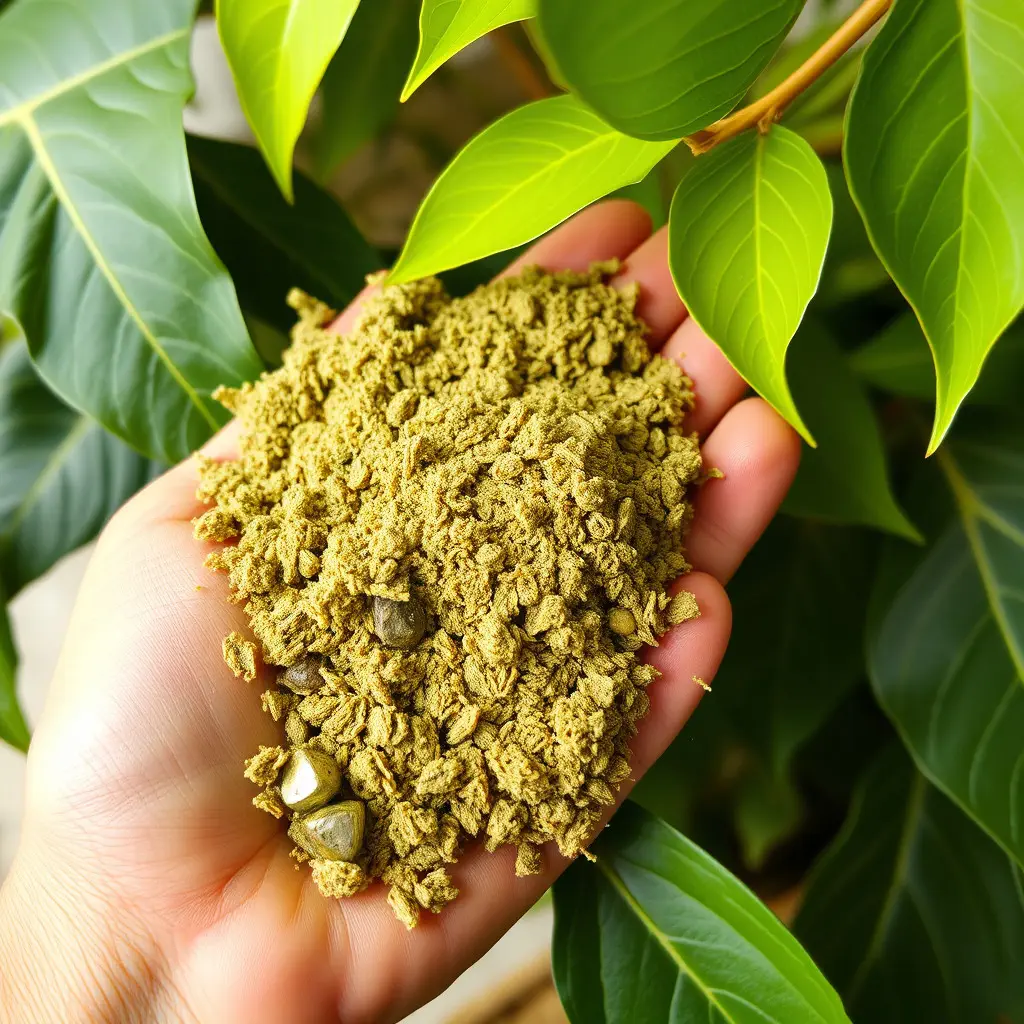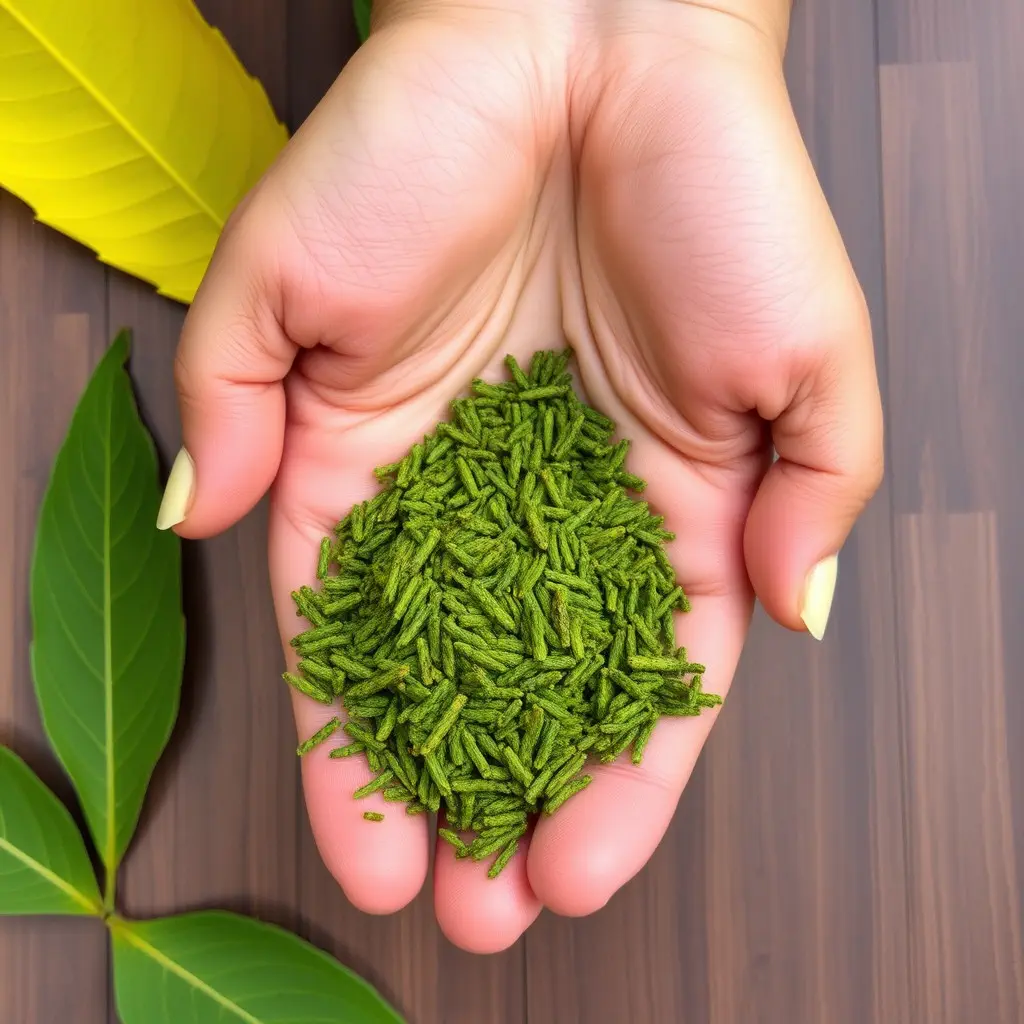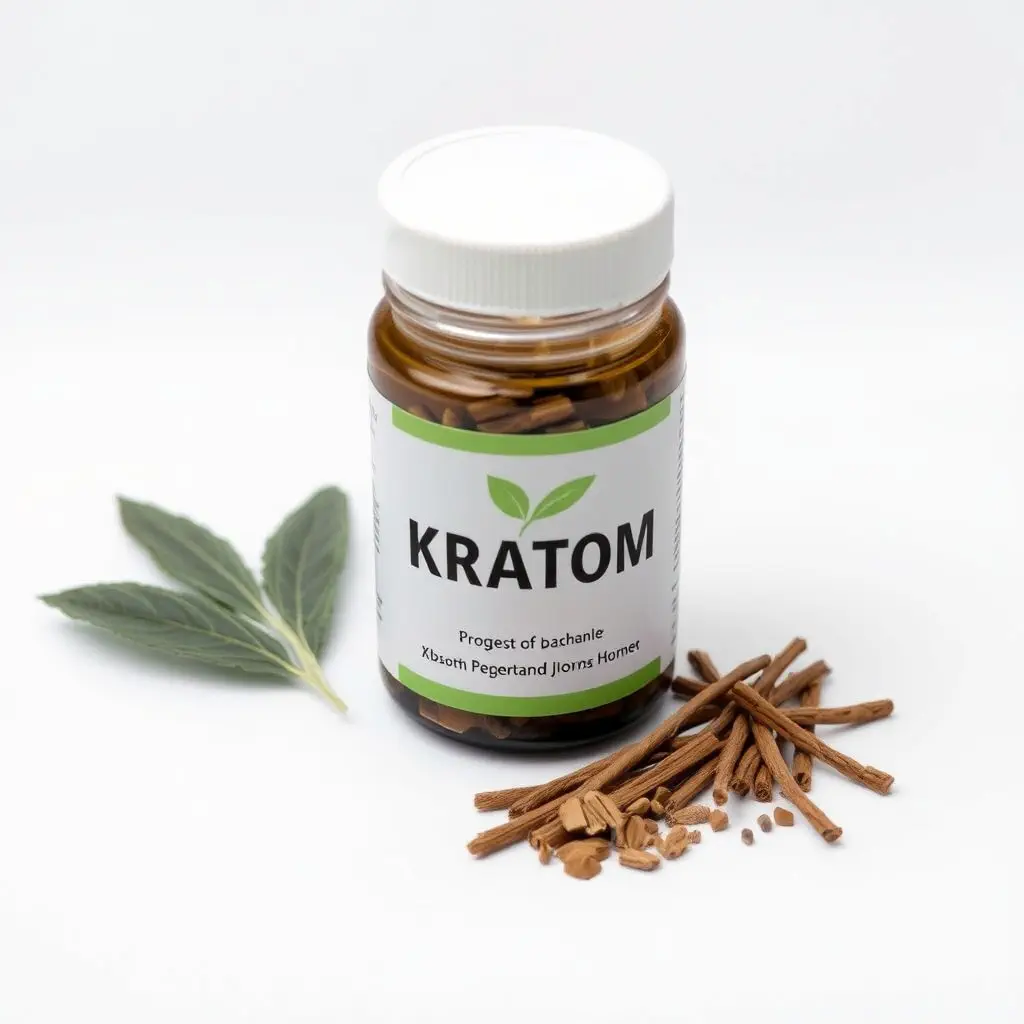Kratom, a plant with origins in Southeast Asia, has garnered attention for its potential to aid in stress relief and enhance cognitive function, particularly memory. The alkaloids mitragynine and 7-hydroxymitragynine found within its leaves interact with the body's opioid receptors, which can lead to a sense of calmness and alleviate anxiety. Emerging studies suggest that kratom might also bolster memory by promoting neurogenesis and supporting synaptic plasticity, key processes for learning and retention. Users have reported positive effects on focus and mental clarity. However, it is crucial to approach kratom use with caution due to its variable effects based on strain, dosage, and individual biology. The legal status of kratom can vary greatly by region, and potential side effects and interactions with other substances must be carefully weighed. Users are encouraged to consult healthcare professionals for informed decision-making regarding the use of kratom as a natural aid for stress management and memory enhancement, considering both personal health needs and current regulations. As research evolves, the scientific community continues to explore kratom's effects and implications, advocating for responsible use and further investigation into its cognitive benefits.
Exploring the multifaceted effects of Kratom, this article delves into its potential for alleviating stress and anxiety, as well as its intriguing influence on memory enhancement. We will examine how Kratom’s unique properties contribute to mental well-being, offering insights into its role in cognitive function improvement. Join us as we dissect the science behind Kratom’s effects, ensuring a comprehensive understanding of its applications for those seeking natural alternatives to manage stress and sharpen mental acuity.
- Unveiling the Potential of Kratom for Stress and Anxiety Mitigation
- Kratom's Role in Enhancing Memory and Cognitive Function: A Closer Look
- Balancing Act: How Kratom Can Contribute to Mental Well-being and Memory Improvement
Unveiling the Potential of Kratom for Stress and Anxiety Mitigation

Kratom, a tropical evergreen tree native to Southeast Asia, has garnered attention in natural health circles for its potential therapeutic properties, particularly in the realm of stress and anxiety management. The active compounds found in kratom leaves, known as alkaloids, such as mitragynine and 7-hydroxymitragynine, interact with the body’s opioid receptors, which can lead to a modulation of mood and an alleviation of psychological distress. Users report that kratom helps in managing stress by promoting a sense of calm and well-being, allowing for a more focused and clear-headed approach to daily challenges. Additionally, preliminary research suggests that kratom might offer benefits for memory enhancement, which could be attributed to its potential neuroprotective effects. This dual action of mitigating stress while potentially improving cognitive functions makes kratom an intriguing option for individuals seeking natural alternatives to manage their anxiety levels and support mental clarity. As with any supplement or herb, it is crucial to approach the use of kratom with caution and to adhere to recommended dosages, considering the varying strains and their individual effects on users. It is also important to stay informed about current research and regulations surrounding kratom, as the understanding of its full spectrum of effects continues to evolve within the scientific community.
Kratom's Role in Enhancing Memory and Cognitive Function: A Closer Look

Kratom, derived from the leaves of Mitragyna speciosa, has garnered attention in various circles for its potential cognitive benefits, including memory enhancement. Preliminary studies suggest that certain strains of kratom may interact with neurotransmitters in the brain, potentially enhancing mental clarity and focus, which can be conducive to improved memory retention and recall. The alkaloids found within kratom leaves, such as mitragynine and 7-hydroxymitragynine, are believed to influence the brain’s reward pathways and modulate neurotransmitter systems like dopamine and acetylcholine, which play critical roles in cognitive processes. This modulation could theoretically facilitate better learning and memory consolidation over time.
Moreover, anecdotal evidence and user experiences highlight the subjective improvement in concentration and memory, particularly with consistent use. It is important to approach these claims critically, as individual responses to kratom can vary significantly due to factors like dosage, frequency of intake, and personal physiology. Additionally, the scientific community calls for more rigorous research to elucidate the mechanisms by which kratom may influence memory enhancement and cognitive function, including longer-term effects and potential risks. As such, while there is an emerging interest in kratom’s role in cognitive health, it is crucial to consider the current limitations of the available evidence and to approach its use with caution, especially given the lack of regulation and standardization in kratom products on the market. Users interested in exploring kratom for memory enhancement should do so responsibly and ideally under the guidance of a healthcare professional.
Balancing Act: How Kratom Can Contribute to Mental Well-being and Memory Improvement

Kratom, a plant originating from Southeast Asia, has garnered attention for its potential effects on mental well-being and cognitive function. Its alkaloids, mitragynine and 7-hydroxymitragynine, are believed to interact with the brain’s receptors, influencing mood and stress response. Users often report feelings of calmness and reduced anxiety, which can be particularly beneficial for individuals grappling with stress-related conditions. Beyond its mood-elevating properties, there is emerging evidence suggesting that kratom may also contribute to memory enhancement. Preclinical studies indicate that certain alkaloids in kratom might promote neurogenesis and support synaptic plasticity, which are essential for learning and memory processes. This suggests a dual role for kratom in not only mitigating anxiety but potentially improving cognitive function over time, making it a subject of interest for researchers exploring natural alternatives to manage mental health and enhance brain performance.
Incorporating kratom into one’s routine may offer a holistic approach to mental well-being and memory improvement. However, it is crucial to approach its use with caution, as the regulatory status varies by country and state, and there are potential side effects and interactions with other substances to consider. Users should seek guidance from healthcare professionals before integrating kratom into their regimen, ensuring safe and informed usage aligned with individual health needs and legal frameworks. As research continues to evolve, the role of kratom in cognitive enhancement and stress management remains an area of intrigue and investigation.
Kratom has emerged as a multifaceted agent, offering promise in the mitigation of stress and anxiety, as well as contributing positively to memory enhancement and cognitive function. The exploration of its potential benefits presents a compelling case for further research into this natural substance’s applications. As evidenced by the studies and expert insights discussed, Kratom may play a significant role in supporting mental well-being and cognitive health, offering a potentially valuable tool for individuals seeking to maintain or improve their memory capabilities. It is clear that Kratom holds significant potential, but it is crucial for individuals to approach its use with caution and informed guidance due to its complex nature and regulatory considerations. Prospective users should consult healthcare professionals before incorporating Kratom into their wellness routines to ensure safe and effective use.






